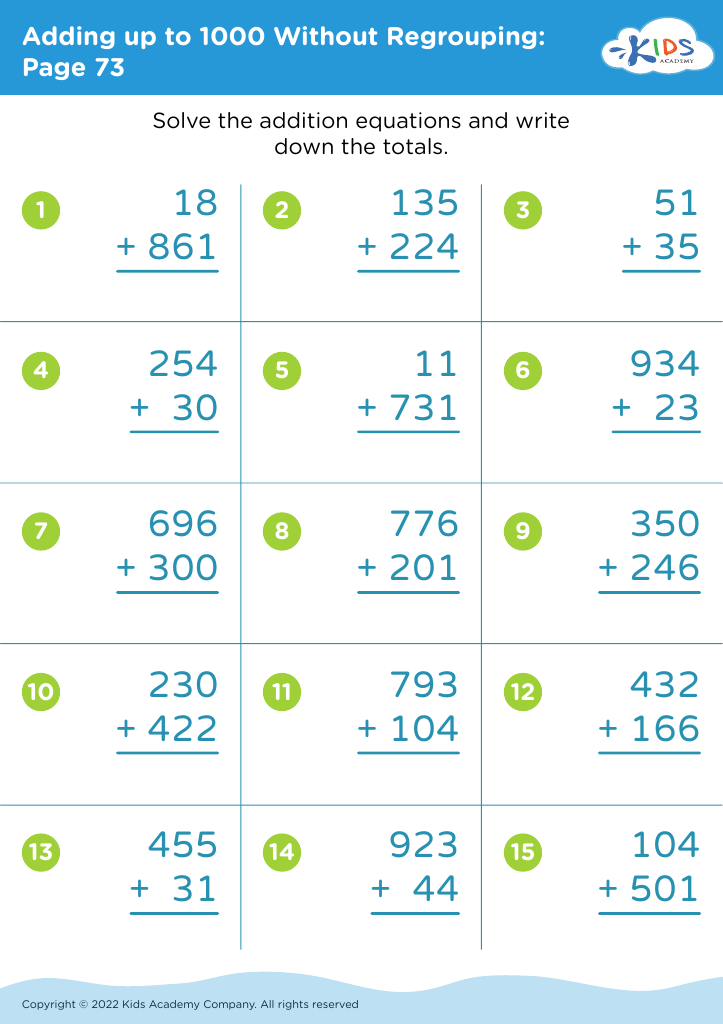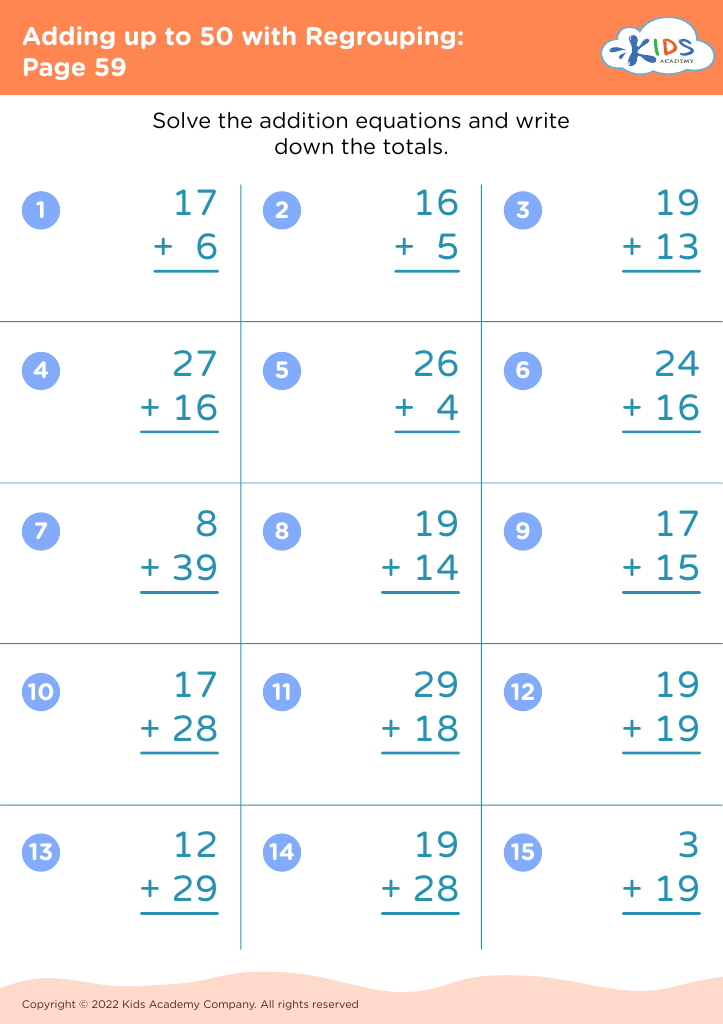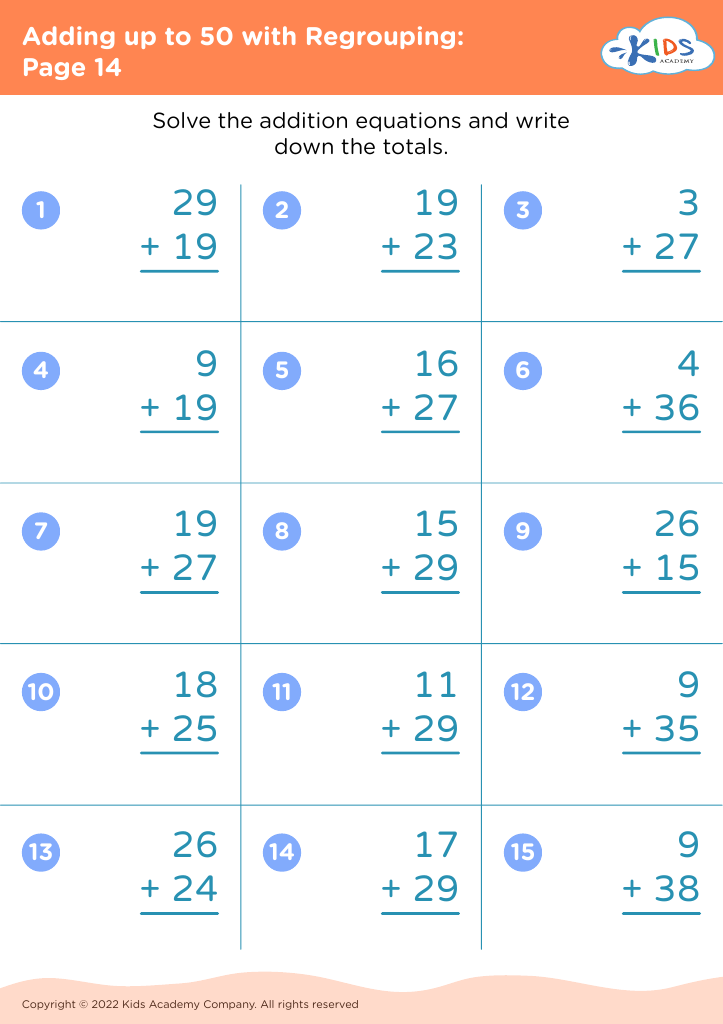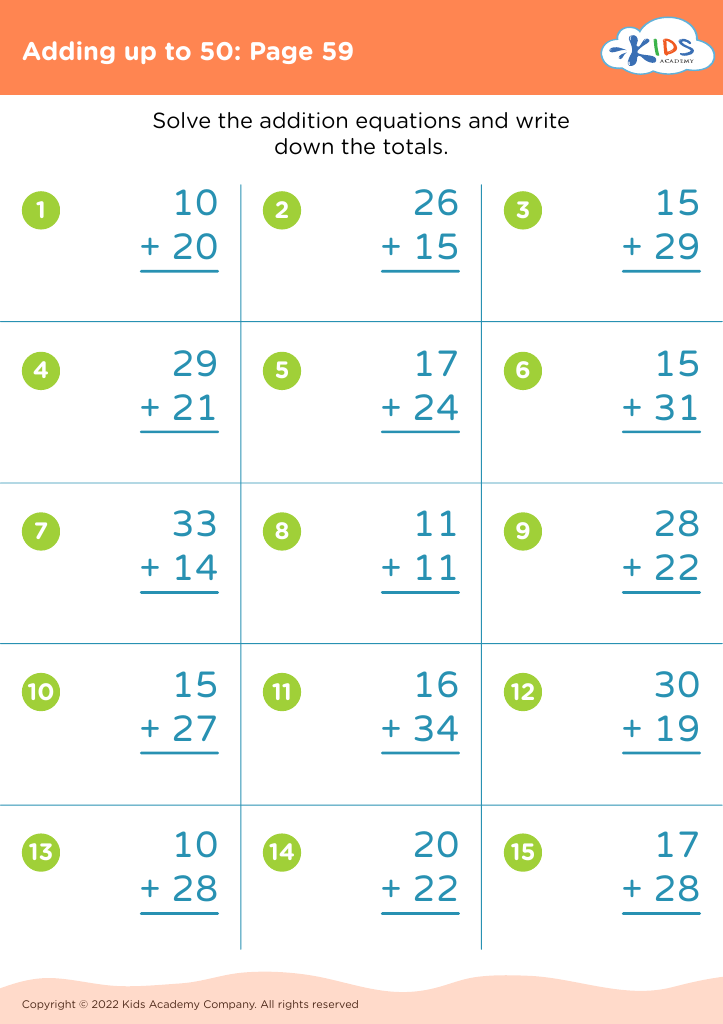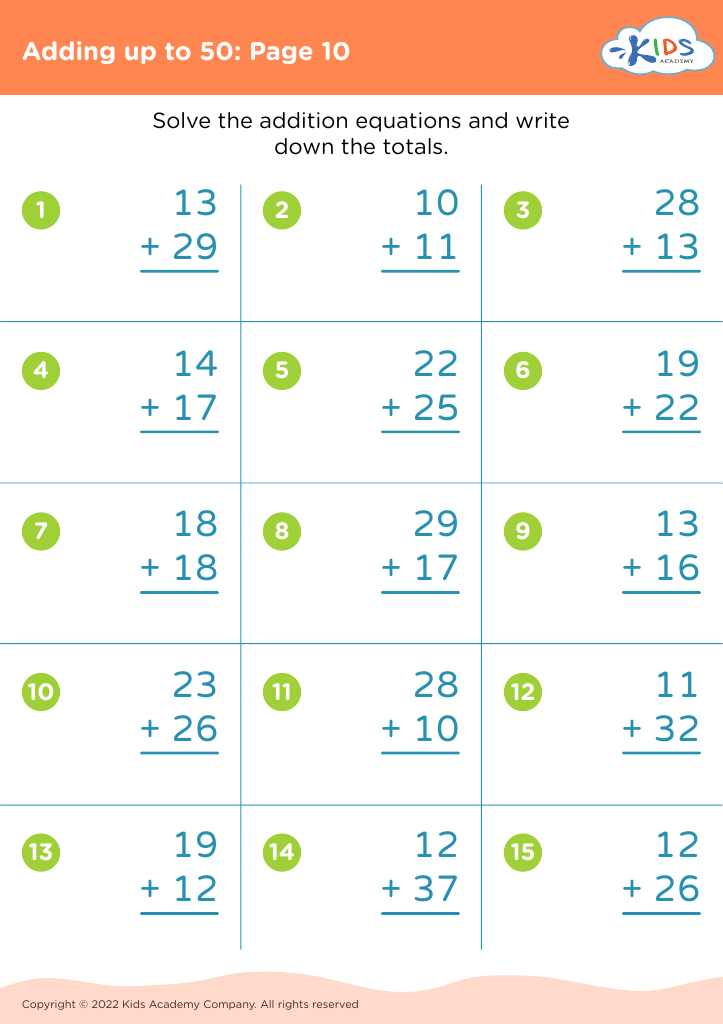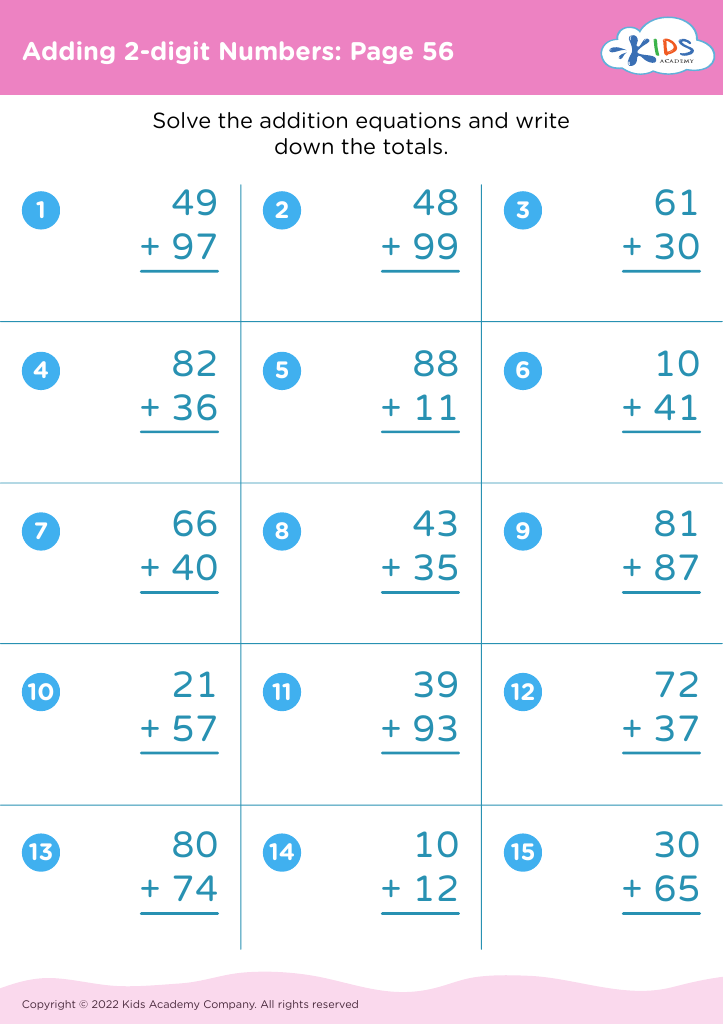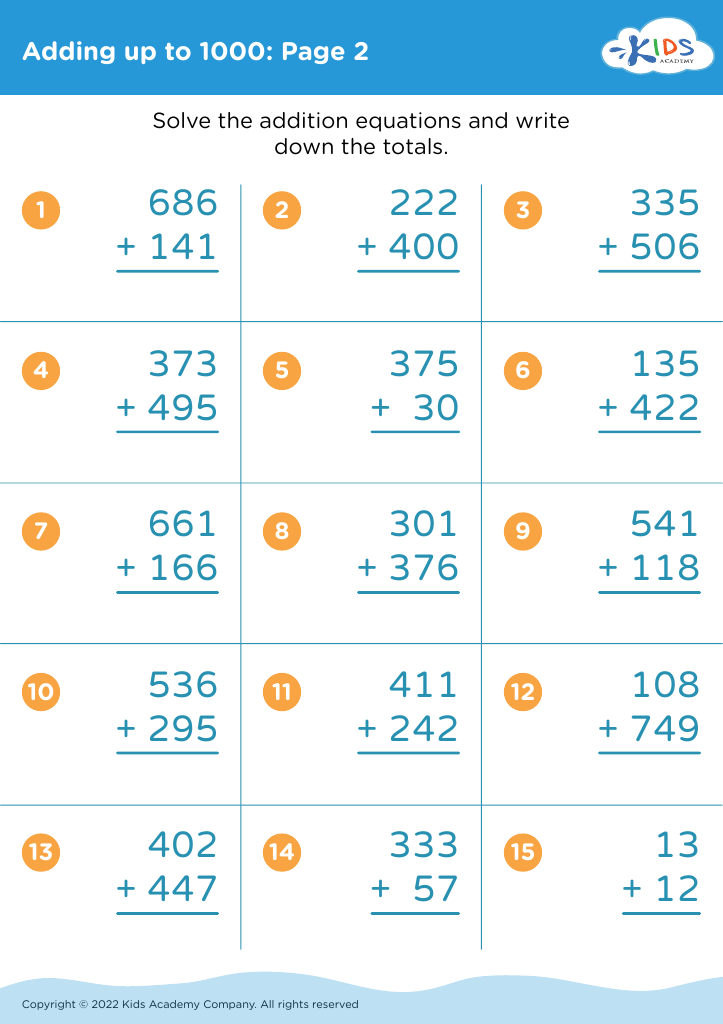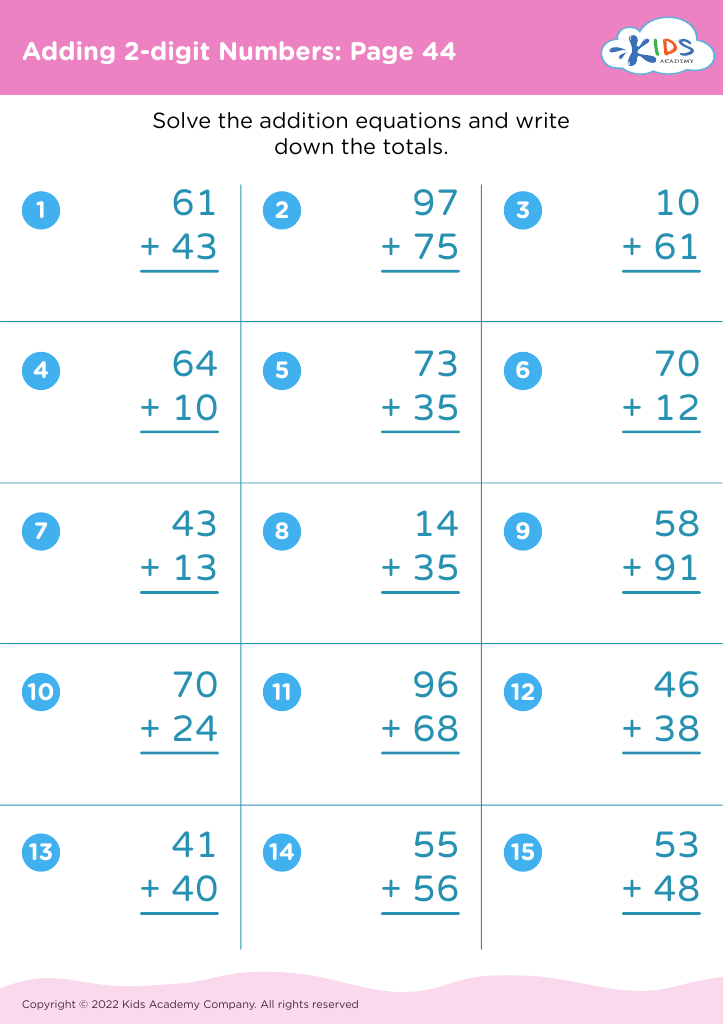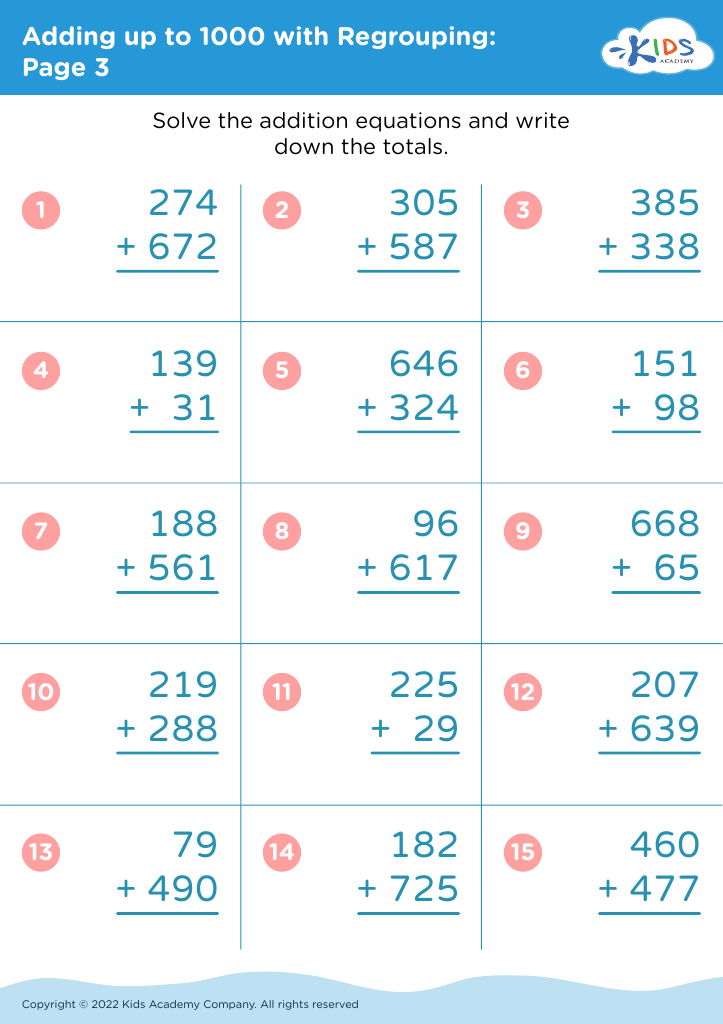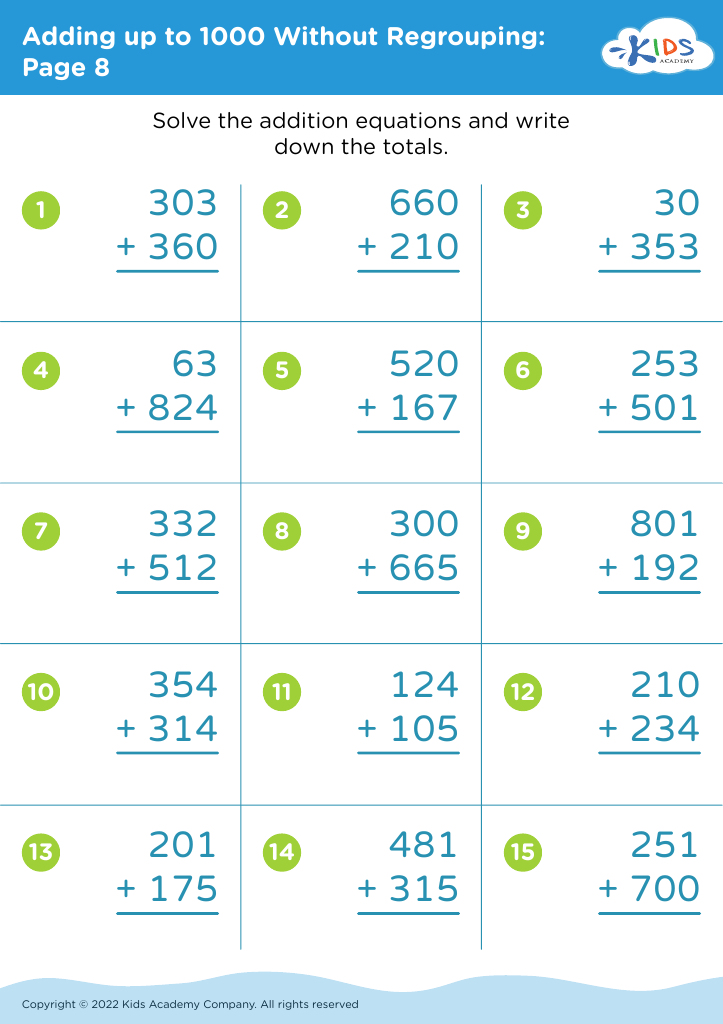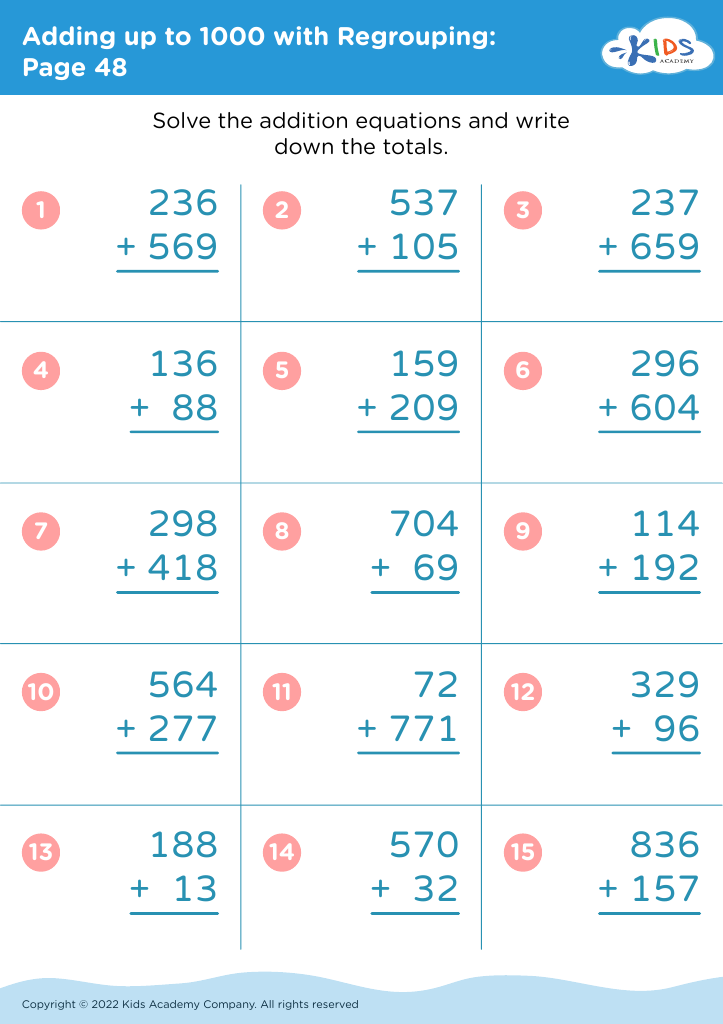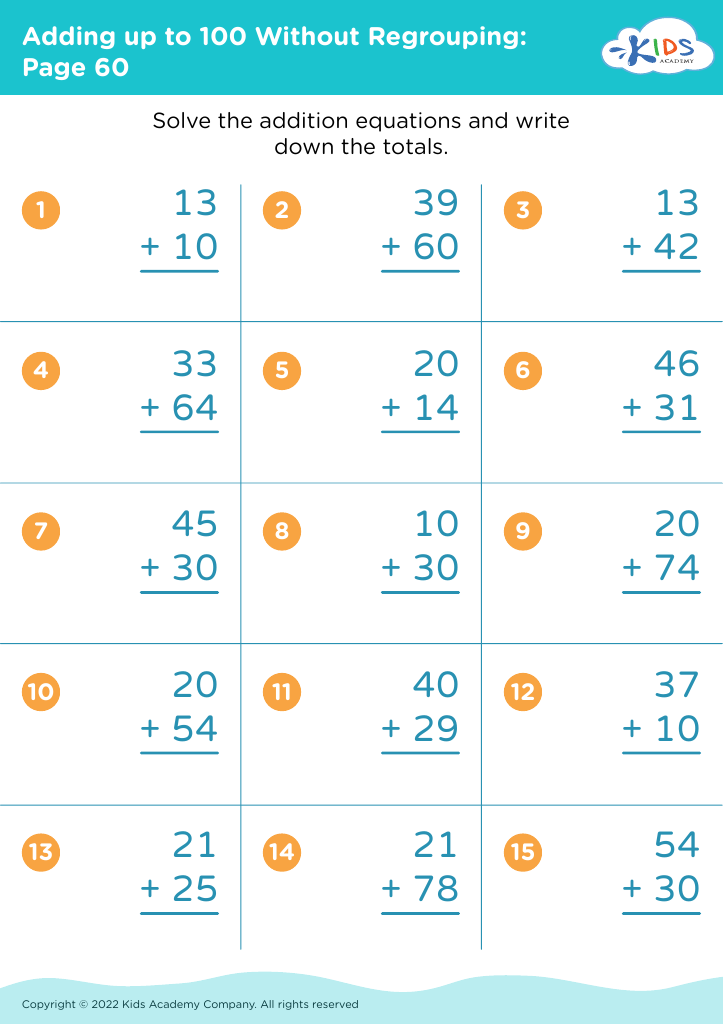Enhance comprehension Math Worksheets for Ages 3-7
17 filtered results
-
From - To
Welcome to our "Enhance Comprehension Math Worksheets for Ages 3-7" page! Here, we provide engaging and interactive worksheets designed to improve young learners' math comprehension skills. Our printable resources are tailored for children ages 3 to 7, focusing on essential concepts like counting, number recognition, and basic addition and subtraction. These worksheets employ colorful visuals and fun activities that captivate young minds, making learning enjoyable and effective. Whether in the classroom or at home, these worksheets will help your child develop a strong foundation in math while building their confidence and critical thinking skills. Explore our collection and enhance learning today!
Enhancing comprehension in math for children ages 3-7 is crucial for their cognitive development and future academic success. During these formative years, children are developing foundational skills that will influence their understanding of more complex mathematical concepts later on. Mathematical comprehension goes beyond rote memorization; it involves understanding numbers, relationships, and problem-solving techniques. This early comprehension fosters critical thinking and reasoning skills.
Parents and teachers play an essential role in supporting this learning process. Engaging children with interactive and age-appropriate math activities helps them develop a positive attitude toward math, encouraging curiosity and a love for learning. Introducing concepts through play, storytelling, and real-life experiences enables children to grasp abstract ideas in a tangible way, making learning enjoyable and relatable.
Moreover, early math education can help close achievement gaps. Several studies show that children who build a strong foundational knowledge in math are more likely to excel in later grades, influencing their educational trajectory. By fostering math comprehension early on, parents and educators can empower children, promoting perseverance and resilience in problem-solving and instilling confidence in their abilities. In summary, emphasizing enhanced math comprehension from a young age lays the groundwork for lifelong learning and success.

